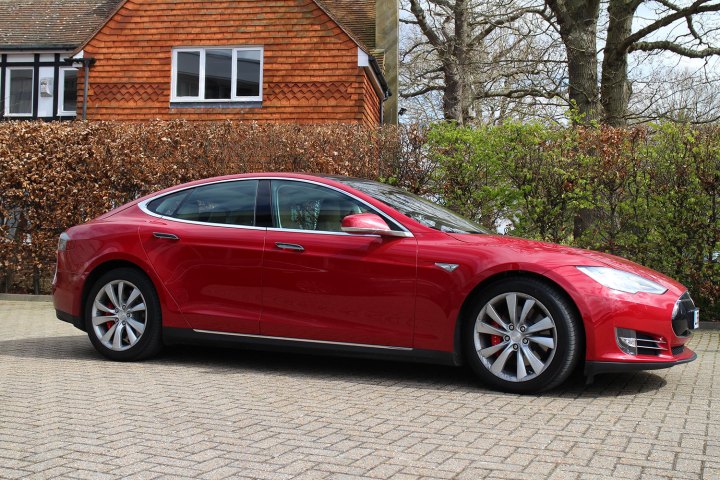
You can look at Teslas, you can sit in them, you can talk with Tesla product specialists about them, you can take them for test drives, and you can get them fixed in the Tesla building. You just can’t buy them. Why? Well, because the DMV says so, that’s why.
But wait, you can buy Teslas at the company’s showroom, service facility, and store in Raleigh, a mere 166 miles away. Something doesn’t make a whole lot of sense here, certainly not on the surface. Slightly below the surface, it gets interesting.
North Carolina state law prohibits auto manufacturers from selling directly to consumers, unless the car makers get an exception. An exception is only granted if the car company shows that selling directly would benefit consumers. So Tesla applied for an exception.
It turns out some local car dealers objected, as did the North Carolina Automobile Dealers Association. So the DMV held a two-day hearing in Matthews, North Carolina, the Charlotte suburb in which the Tesla facility is located.
The result of the appeal? DMV hearing officer Larry Green said that not only did Tesla fail to make its case that selling its own cars would be in the best interest of the public, but there was also a local alternative. Green said that of four local dealers who were “willing” to sell Tesla automobiles, in his estimation three of them are qualified to do so.
Tesla’s next step, should it choose to take it, is to appeal to the DMV commissioner, whose office is in Raleigh, the state capitol. If an appeal doesn’t work, the next step would be to take the DMV to court.
It is interesting, as WFAE noted, that when the Raleigh Tesla Store opened in 2013 there were no local dealer objections and no DMV hearing. North Carolina isn’t the only state that has opposed Tesla’s sales model, but the in-state inconsistency stands out.
Was it an oversight that when the Raleigh Tesla Store opened the DMV didn’t block it as a violation of state law? Are car dealers only now objecting since the visibility and reputation of the all-electric car maker are more in the public eye? Has the prospect of roughly 400,000 Tesla Model 3’s currently on reservation and slated to start delivery outside the traditional car dealer network in late 2017 gotten the dealers’ attention?
Or could it be something going on between Raleigh and Charlotte? Raleigh can have a Tesla store but Charlotte can’t, and as the state capital, Raleigh’s in charge. That last point was made very clear earlier this year when an LGBT anti-discrimination ruling in Charlotte so upset the state leadership it quickly convened and passed House Bill 2, better known as HB2 or the “Bathroom Bill.” HB2 not only over-ruled Charlotte’s anti-discrimination law for bathroom use but also stated very clearly that local governments do not have the right to make discrimination laws, either for or against anything; that’s the state’s job.
The backlash has been severe against the Bathroom Bill by industry, especially the tech industry but many others as well, by entertainers and entainment companies like Disney, sports organizations, other state governments restricting employee travel to North Carolina, and even the Federal Department of Justice which filed a discrimination suit against the state. With all the commotion, it will be interesting to see how a Tesla appeal to the DMV commissioner will turn out, should the company decide to file.



